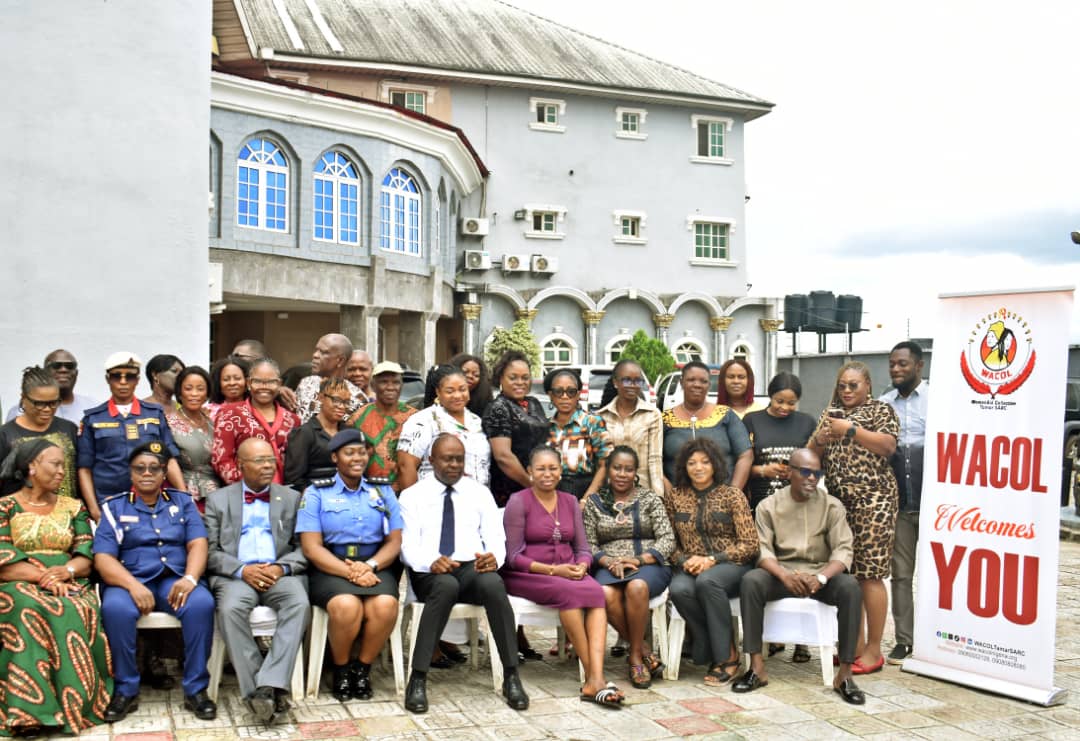Women Aid Collective (WACOL), in partnership with the Ford Foundation, convened a high-level workshop at Gado International Hotels, Umuahia, to strengthen the capacity of government officials and MDAs to prevent and respond effectively to Violence Against Women and Girls (VAWG) and Harmful Practices (HP).
The workshop also spotlighted the promotion of Sexual and Reproductive Health and Rights (SRHR) of women and girls through the implementation of relevant extant laws on Gender-Based Violence (GBV) and VAWG.
The event opened with remarks from Anulika Ezennia, Program Manager of WACOL, who represented the organization’s founder, Prof. Joy Ngozi Ezeilo, SAN. In her welcome note, she underscored the urgency of coordinated government and community response to violence against women, describing it as “a test of how much Nigeria values the dignity of its citizens.”
The workshop drew participation from critical stakeholders including the International Federation of Women Lawyers (FIDA), the State Criminal Investigation Department (CID), Michael Okpara University of Agriculture, Umudike, Ohafia LGA Health Authority, Full Gospel International, the Nigeria Police Force, the State Education Management Board, and the Ministry of Local Government and Chieftaincy Affairs, among others.

Two seasoned legal experts anchored the technical sessions.
Barr. Kingsley Eke Imaga handled two sessions: first, on the connotations of violence against women, where he broke down its definitions, causes, myths, and economic impact; and later, on prosecuting cases of VAWG, where he highlighted the roles of prosecutors, the Ministry of Justice, and other agencies in building an effective multi-sectoral response.
Barr. Dr. Emeka Iroanya also facilitated two key sessions: one on existing laws and policies on violence against women, examining national, regional, and international frameworks; and another on measures necessary to prevent and prosecute VAWG, where he called for the enactment of a law mandating compensation for victims who contract STDs as a result of abuse.
Adding the voice of law enforcement, the Police Public Relations Officer of Abia State Command, Maureen Chinaka, commended the initiative. “More grace to the organisers. There’s nothing that justifies violence, that’s why there are organizations and agencies to enforce laws. Programs like this should also be taken to primary and secondary schools,” she urged, emphasizing the importance of early prevention through education.
The agenda also featured an interactive session where participants raised concerns about gaps in access to justice. One participant asked: “How efficient is free legal aid, especially for those who cannot afford it? And can laws be made to prevent cultural practices that fuel violence against women?”
Responding, Barr. Becky Ikechi of FIDA outlined the forms of support her organization provides, lamenting that lack of grants hampers the scale of their intervention. She stressed that while FIDA offers free legal services, stronger financial support is needed to reach more women.
Barr. Imaga reassured participants that organizations like FIDA and WACOL remain open doors for legal support, and encouraged women not to be silenced by poverty or stigma. “Justice is not the privilege of the rich,” he emphasized, “women should not endure violence in silence for fear of cost or cultural backlash.”
The workshop closed with group exercises on strategies to stem the tide of VAWG and more effective ways to prosecute perpetrators, reinforcing WACOL’s and Ford Foundation’s commitment to building a society where women and girls can live free from violence.
Chukwuemeka Egejuru
Editor

























